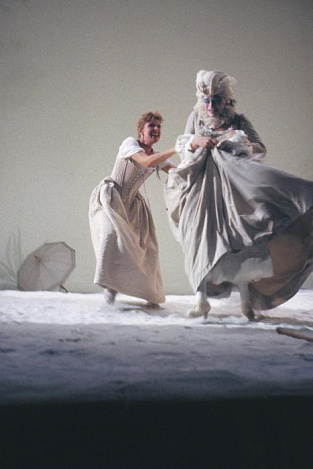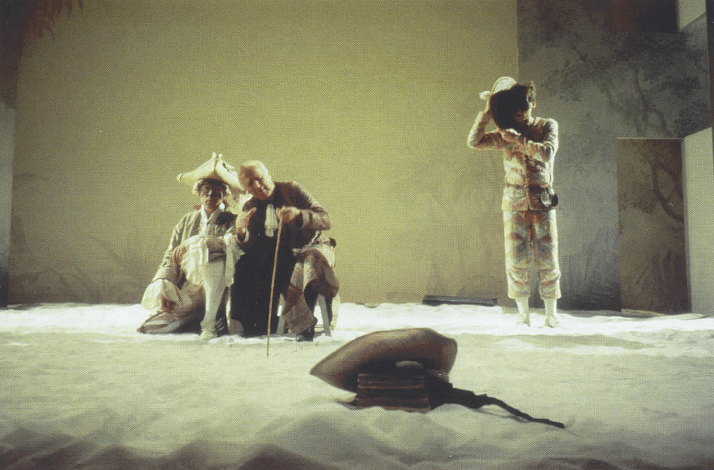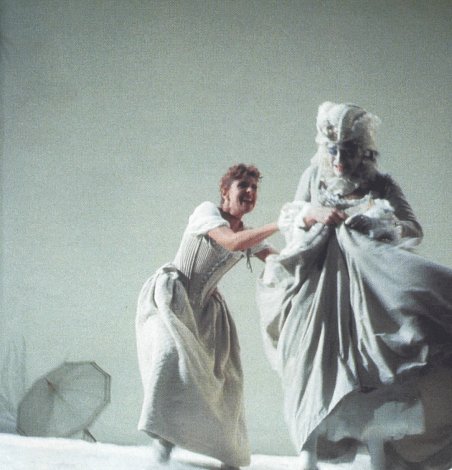| Translation, adaptation and direction: | Giorgio Strehler |
| Scenes: | Ezio Frigerio |
| Costume: | Luisa Spinatelli |
| Music: | Fiorenzo Carpi |
| Mimic movements: | Marise Flach |
| Assistant director: | Karlo Battistone |
| Assistant designer: | Leyla Fteita |
| Musical assistant: | Raoul Ceroni |
| Costume assistant: | Maria Carla Ricotti |
| Voices: | Alessandro Mor, Paola Roscioli, Luca Scaglia, Maria Grazia Solano |


The «Island of Slaves» was staged for the first time on March 5, 1725 in Paris, in «Comedie Italienne». It went over with a bang. It was performed in «Comedie Italienne» till 1742 and then since 1754 to 1761. In 1939 the play was staged in the «Comedie Francaise» by Pier Dux. Fr om the beginning of 60's the play became very popular. On the Baalbek Festival in 1964 «Comedie Francois» showed the Jak Sharon's production of the play. For the third time in «Comedie Francaise» the play was directed by Simon Eine in 1973. During the 60's a lot of directors wanted to revalue the social content of «The Island...». The most flourished was the performance by Guy Retore in 1963 in Paris due to its futuristic settings. The last performance of the «Island...» had place in Strasbourg National Theatre and was directed by Jan Mary Villegier in 1994. Concerning the Italian stage Marivaux is discovery for it. «The Island of Slaves» in the translation and interpretation by G.Strehler is the first Italian Marivaux.
Giorgio Strehler:
For а long time I defered the meeting with Marivaux. But the wish to touch with his theatre became more and more necessary especially in the fundamental moments of my life. This wish followed me through my meeting with Shakespeare's «The Tempest», and peripeteias of «The Illusion» by Corneille. I found it in our trip around Goldoni, in our unfortunately unrealialised project of «The Memoirs»...
And now Marivaux is here. With his «small» text of «The Island of Slaves». With his letter about disappointed bearing, with his utopia. And with his humanism and brilliancy, with his world wh ere the play and dialectic can meet. That is the world of lords hesitatingly standing between the arrogance of orders and triumph of love; the world of slaves which exaggerate the first one and contradict it at the same time. During the long period the slaves in Marivaux's theatre considered to be just the «monkeys» of their lords, and their behavior was only the grotesque and comical mirror of their lords' lifestyle. However in all his comedies Marivaux tells us antithetical things. The slaves live their own lives. Copying the lords' images and lifestyles they just satisfy their own wishes and needs. But the fulfillment of their wishes is possible only through the needs of the lords. As Arleccino said «Slaves are more wise than their lords». The slaves seem more funny just because their buffoonery is the mere way to express themselves freely. So the lords are funny despite of their will; the slaves are always fanny with visible reason.

